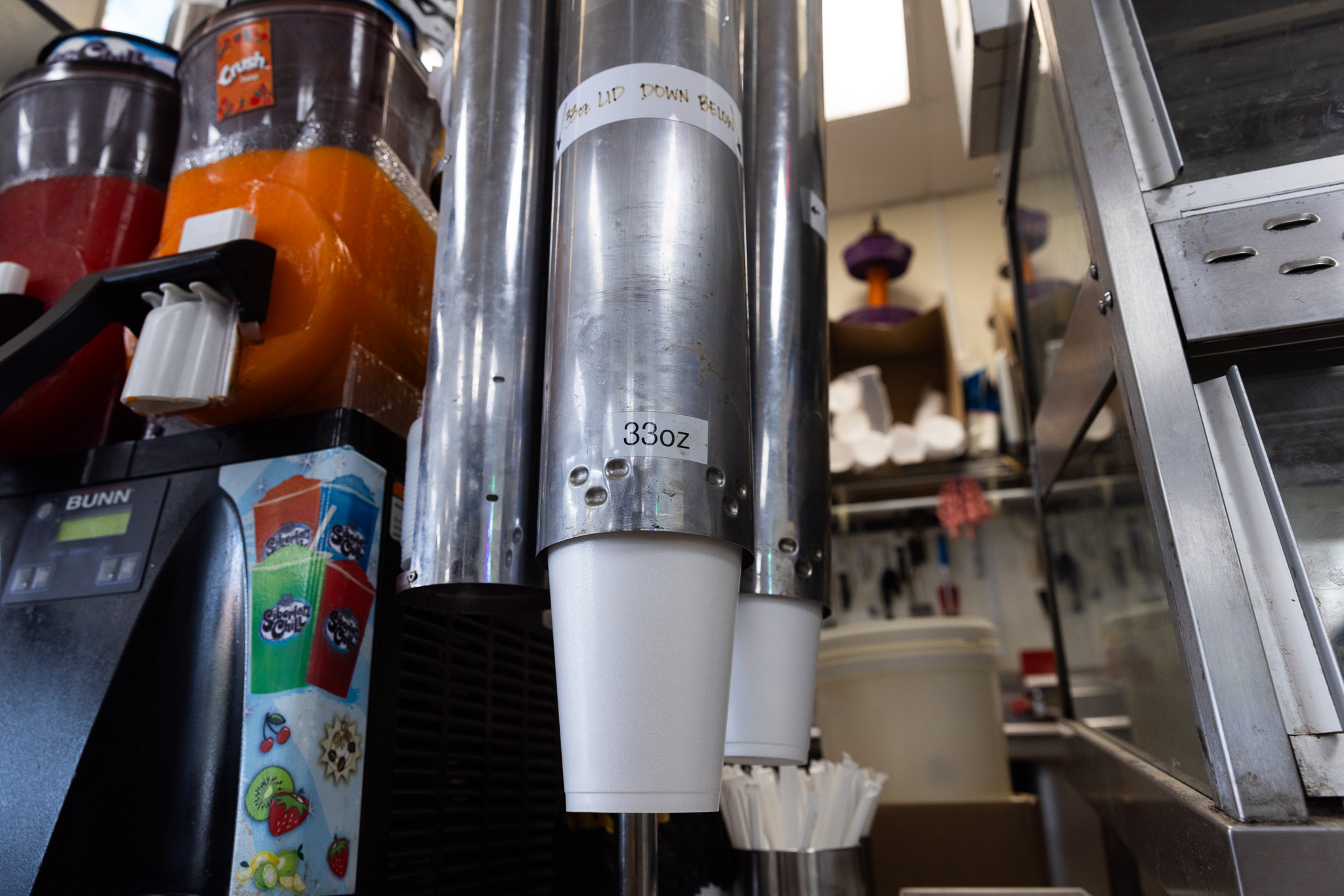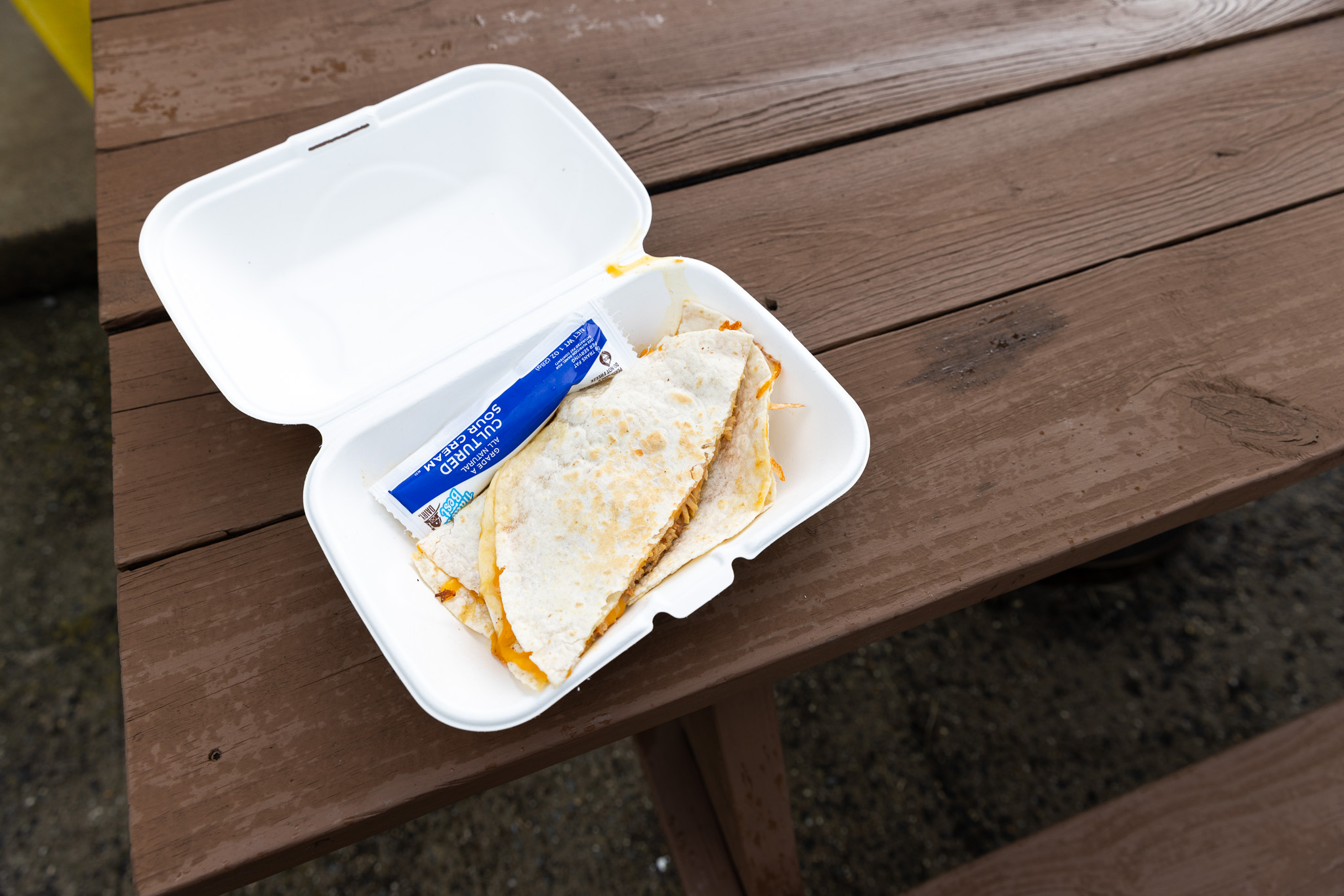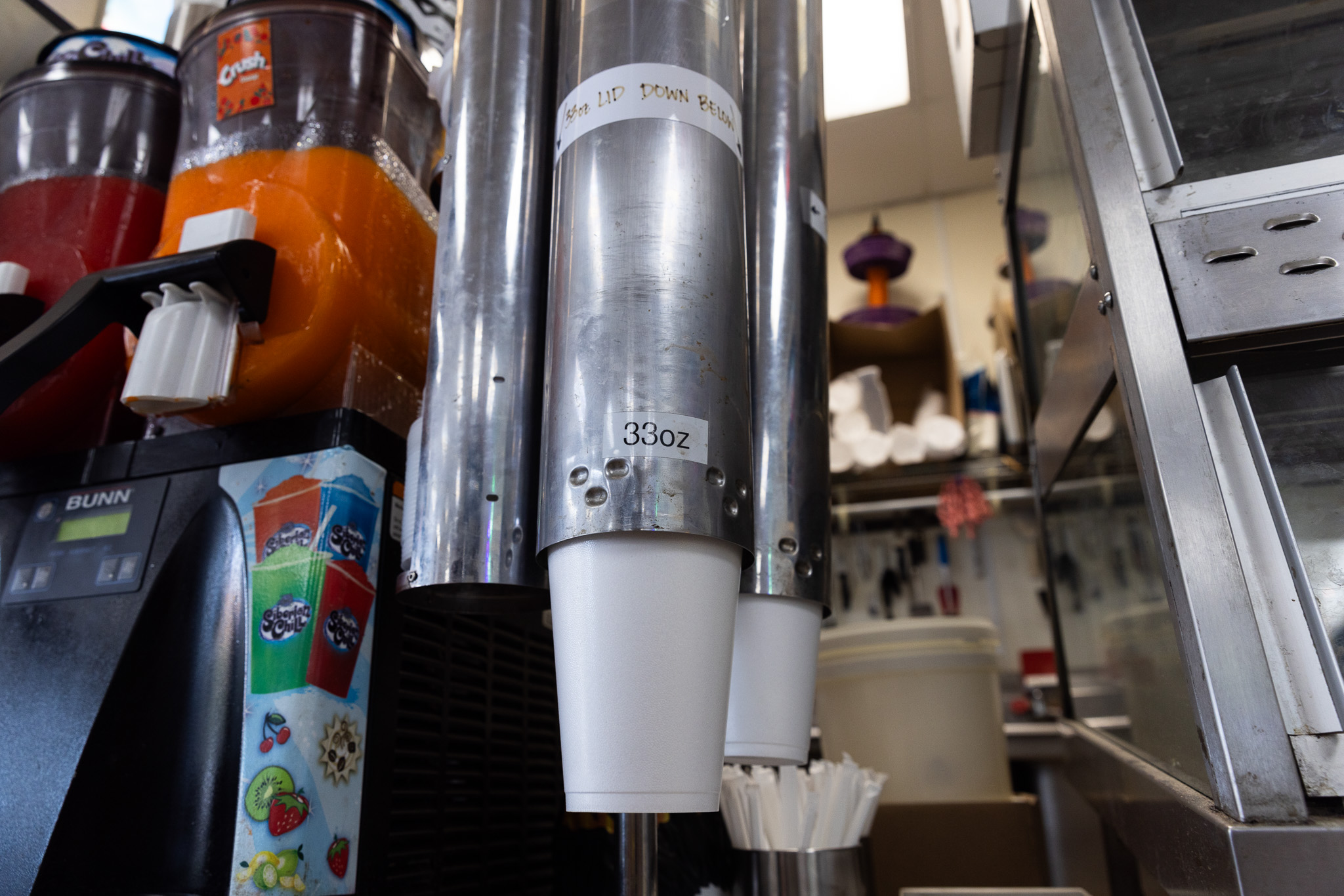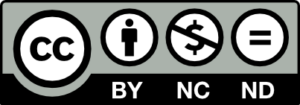Takeout food and drinks will look different from this week on.
A Virginia state ban on single-use styrofoam containers, technically known as expanded polystyrene (EPS), became law July 1. It prohibits food vendors from using styrofoam plates, cups, bowls, trays, to-go containers and more.
The ban was approved in 2021, but implementation was delayed. A failed budget amendment proposed by Gov. Glenn Youngkin in March would have delayed it further, with larger establishments having to comply by 2028 and smaller establishments by 2030.
The ban is in two phases. For now, it covers food vendors with 20 or more outlets, including restaurants, grocery stores, food trucks and caterers. Schools and community groups funded by programs like the National School Lunch Program and the Child and Adult Care Food Program also are included.
In July 2026, the ban is to expand to cover all food vendors in the state. Violators will be fined up to $50 for each day they breach the ban which, the Department of Environmental Quality says, is to be policed by local authorities acting on complaints from the public.
But localities may grant a one-year exemption for vendors who would suffer economically. Culpeper County Public Schools recently applied for and received such an exemption. Rappahannock County Public Schools were already seeking alternatives before the ban and have bids out for other options such as paper for use in the new school year.
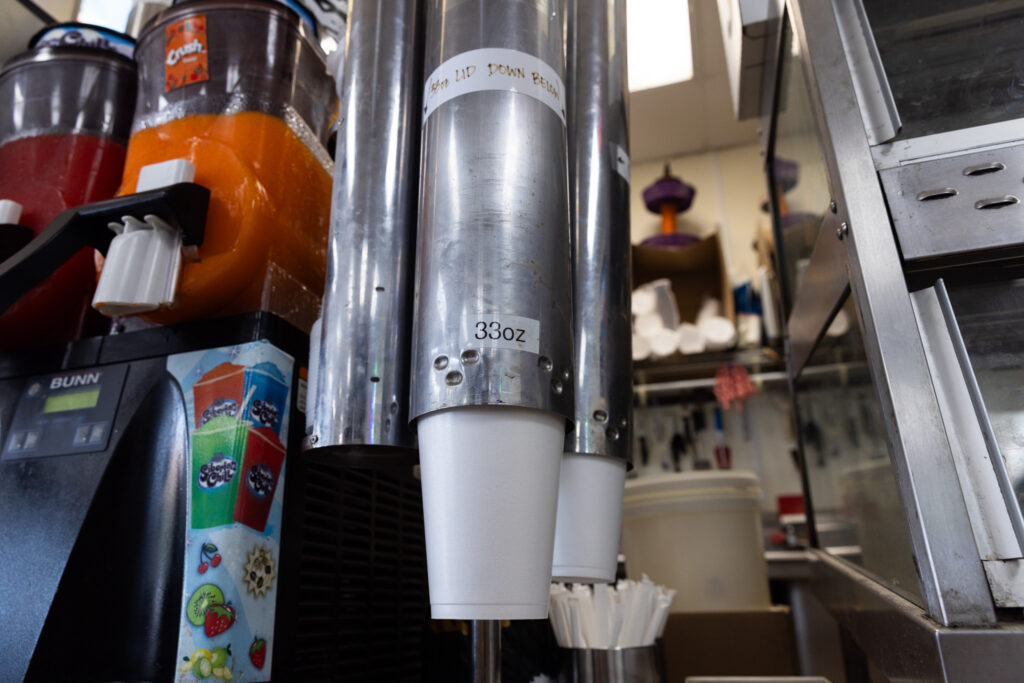
Styrofoam cups in Quickie Mart in Washington. Small businesses do not have to switch away from single-use styrofoam until July 2026. (Photo/Ireland Hayes)
Ban advocates
Advocates for the ban say styrofoam takes at least 500 years to break down. Styrene also is a possible carcinogen. And less than 1% of it is recycled.
Brent Hunsinger, the advocacy and coastal programs director of Friends of the Rappahannock, said his group often encounters EPS during cleanups in parks, alongside roadways, by drainage culverts and next to waterways.
“In the last few years the types of litter we pick up has changed to primarily plastics and EPS from metal and glass,” he said. “The EPS has a tendency to break apart into small pieces when crushed or mowed. It is extremely difficult to pick up the tiny pieces. Smaller pieces of EPS are more easily transported by precipitation from roadsides into culverts that drain into our waterways. Once they reach the Rappahannock River they are virtually impossible to remove.”
Hunsinger said the most frequently encountered EPS was from takeout food containers.
“Removing this source of EPS should significantly reduce the amount of EPS we find,” he said.
Some food vendors have already stopped using styrofoam. Laura Brent, owner of Muff’s Sweet Treats and More, a food truck located at Route 211 Eats & Marketplace in Amissville, said her business does not use styrofoam because it is not environmentally friendly and doesn’t have an appealing look.
“We use compostable take-out food containers,” she said. “They are made of sugar cane which is tree free, plastic free and regenerates quickly. They are also BPA free and gluten free with no wax lining.”
Ledmore said these containers are durable and customers have said they were surprised by the absence of styrofoam.
“We care deeply about what we serve our customers,” she said.

A carnitas quesadilla from El Jefe in the new containers. (Photo/Ireland Hayes)
Other options
Knowing the ban was coming, many food vendors already have switched to plastic and paper-based products.
Nikki Keever who, along with Ron Marin, owns El Jefe Street Eats which operates in Amissville and at local wineries and breweries, said they had been trying different options to replace styrofoam in their food truck. After using their last stock of styrofoam, they tried foldable boxes and now are using a microfiber, non-compostable container for most items and a plastic container for their street corn.
She said the cost of the new containers was higher — from $15 for 150 styrofoam containers to $35 for 150 microfiber containers. That, when combined with the increasing price of other goods, has an impact on small businesses. Her real worry, however, was, that once everyone has made the switch, the price of the new containers will rise.
“Once [the ban] goes into effect for everyone, the cost could go up even more due to supply and demand,” Keever said.
Gretchen Ledmore with the Carver Food Enterprise Center in Culpeper said the styrofoam ban has been a topic of conversation among vendors using the center’s shared kitchen. Ledmore said the center doesn’t use styrofoam and focuses on sustainability. She said the organization has tried to use containers that are either compostable, reusable or recyclable.
Information on the EPS ban has been shared with vendors using the kitchen. “It has sparked a great conversation on our messaging system about alternatives and the reason behind the ban,” Ledmore said.
Perhaps sparking the most conversation are Chick-fil-A locations. Reviews have been mixed for their new insulated paper cups. The Warrenton store introduced them June 17.
On a social media post highlighting the change, some guests praised the new cup, while others said the old cups kept ice cold longer and were better quality.
Owner Paul Brock said as of now, the paper cup is there to stay and he isn’t aware of any alternatives being planned. A media relations person from Chick-fil-A, Inc. said the company is committed to providing the best product possible while also being good stewards of the environment. He said Chick-fil-A abides by local regulations which sometimes result in different cups of packing being used across restaurants.



